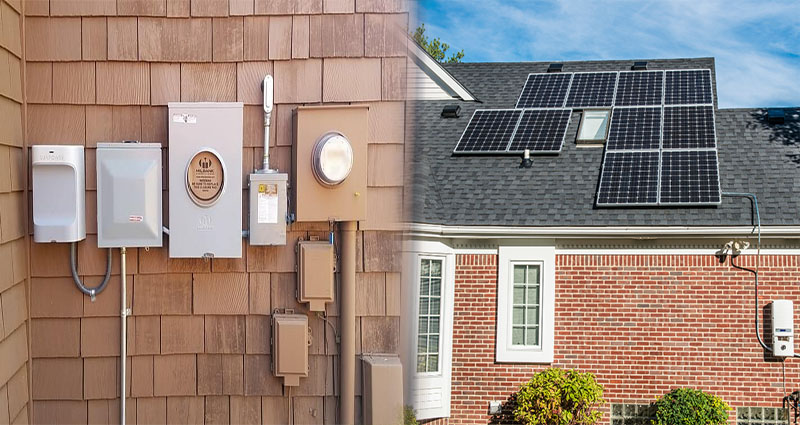Solar energy has emerged as a popular and sustainable option for powering houses. However, there are two main types of solar solutions available: grid-tied and off-grid systems. Understanding the differences and benefits of each is crucial for homeowners looking to harness the power of the sun.
Grid-tied Solar Solutions
Grid-tied solar solutions are connected to the electrical grid, allowing homeowners to draw energy from both the solar panels and the utility company. Here are some key points to know about grid-tied solar systems:
- Cost-Effectiveness: Grid-tied systems are typically more affordable to install and maintain compared to off-grid solutions. This is because homeowners don’t need to invest in expensive battery storage systems.
- Net Metering: With grid-tied solar, excess electricity generated by the panels is fed back into the grid, earning homeowners credits. This arrangement, known as net metering, allows homeowners to offset their energy costs and potentially even make money if they produce more electricity than they consume.
- Reliability: Since grid-tied systems are connected to the electrical grid, homeowners have a constant and reliable source of electricity even when solar panels are not generating power, such as during cloudy days or at night.
- Easy Maintenance: Grid-tied solar systems require minimal maintenance since there are no batteries to replace or monitor. Regular cleaning of the solar panels to remove dirt and debris is typically the only maintenance required.
- Environmental Benefits: By utilizing grid-tied solar solutions, homeowners can significantly reduce their carbon footprint and contribute to a greener future. The use of solar energy reduces the reliance on fossil fuels and helps combat climate change.
Off-grid Solar Solutions
Unlike grid-tied systems, off-grid solar solutions are independent and not connected to the electrical grid. Here are some important considerations when considering off-grid solar systems:
- Energy Independence: Off-grid solar solutions offer homeowners complete energy independence. By utilizing battery storage systems, excess electricity generated during the day can be stored and used during nighttime or in times of low solar production.
- Remote Location: Off-grid solar systems are the ideal choice for homeowners living in remote areas where access to the grid is difficult or not available. These homeowners can enjoy electricity without relying on traditional utility companies.
- Increased Reliability: Off-grid solar systems ensure uninterrupted power supply, even during blackouts or power outages. The battery storage capacity allows homeowners to have electricity at all times, regardless of external factors.
- Higher Upfront Cost: The initial investment for off-grid solar systems is generally higher compared to grid-tied solutions. The cost of batteries and other components required for energy storage can add to the total installation expenses.
- Maintenance: Off-grid solar systems require regular maintenance, especially for batteries. Battery life needs to be monitored, and occasional replacements may be necessary to ensure optimal performance.
Both grid-tied and off-grid solar solutions offer significant advantages. The choice between the two largely depends on individual circumstances and requirements. Homeowners considering solar energy should analyze their energy needs, location, and budget before making a final decision. With the right solar solution, homeowners can enjoy the benefits of clean, renewable energy and make a positive impact on the environment.












